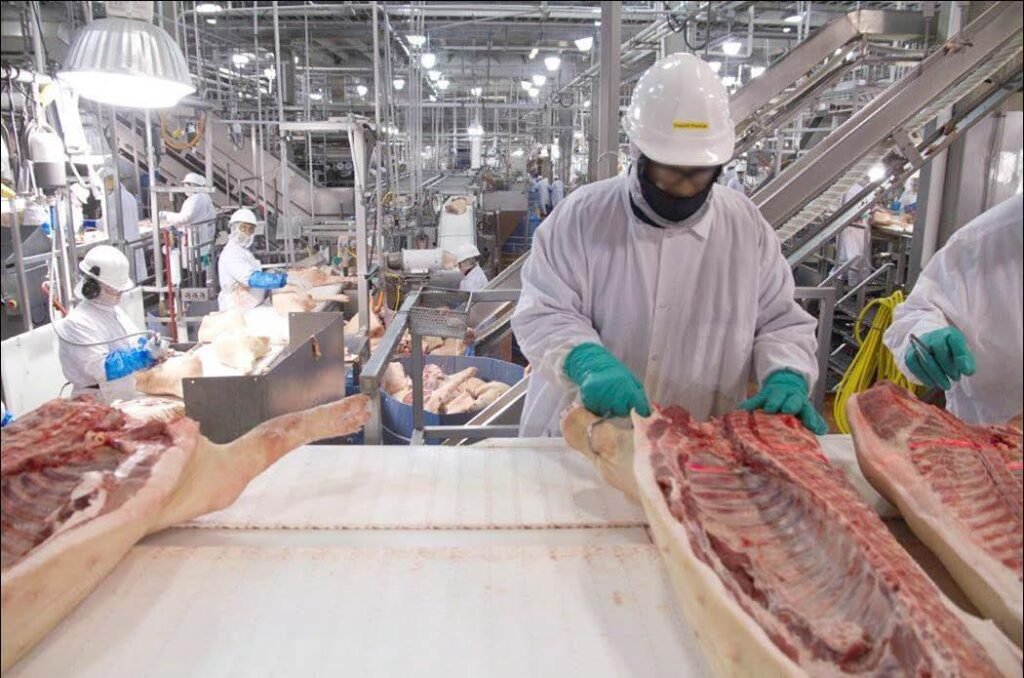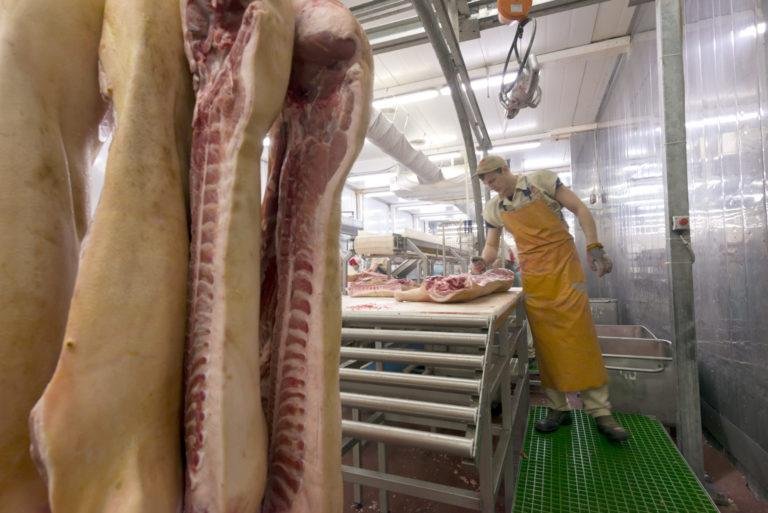In a notable development that has sent ripples through the agricultural sector, Canada has suspended imports from Smithfield Foods’ Tar Heel processing facility in North Carolina. This action, which took effect in March 2025, represents a significant shift in the trading landscape between the two nations. The Tar Heel plant, processing upwards of 30,000 hogs daily, stands as the largest pork processing establishment in the United States.
Canadian authorities enacted this suspension with minimal forewarning. They posted the notification on a USDA website, creating immediate concerns among industry participants who depend on cross-border commerce for their operational viability. Smithfield Foods has characterized the issue as pertaining to a “limited number of certain offal shipments,” though the ban effectively halts all products from the North Carolina facility to Canadian destinations.
The timing of this import cessation raises curious eyebrows. It coincides with elevated trade tensions between Canada and the United States, particularly following President Trump’s recent maneuverings regarding tariffs. Trump temporarily exempted Canada and Mexico from a newly imposed 25% tariff under the U.S.-Mexico-Canada Agreement until April 2. Yet Canadian officials maintained the initial tariffs they established earlier that week on $21 billion in products, suggesting a complex interwoven dance of trade negotiations between the nations.
Trade Implications and Industry Response
Some market observers interpret Canada’s decision through a political lens. Rich Nelson with Allendale suggested the suspension could represent “the Canadian authorities putting a small thorn in our side” amid the emerging trade disputes. Nevertheless, he doesn’t view this as indicative of a fundamental relationship transformation between these historically aligned trading partners. Actually, he believes this might be merely symbolic in nature, given the “highly emotional narrative changes” occurring throughout that week.
For American pork producers, the suspension introduces unwelcome complications. The United States exports approximately 26% of its pork production, with Canada representing the fourth-largest market at $852 million. This statistical reality demonstrates the potential vulnerability inherent in the situation. Producers who typically funnel their livestock to the Tar Heel facility must now navigate an uncertain landscape. The resultant supply chain disruptions could pressure prices and affect market equilibrium in unpredicted ways.
Canada’s own meat processing sector faces obstacles of a different nature. The Farm Credit Canada Economics team projected a challenging landscape for meat processors in 2025, forecasting a 2.8% sales increase paired with a 3.6% decrease in volume. This contradictory projection indicates intensifying pressure on processor margins, which may have influenced regulatory scrutiny of imports.
Diplomatic Backgrounder and Resolution Efforts
The suspension emerges against a backdrop of wider disagreements. Prime Minister Trudeau stated he anticipates Canada and the U.S. would remain in a trade war “for the foreseeable future”. A Wall Street Journal report described a heated conversation between Trump and Trudeau where the American president voiced complaints about Canadian farm imports, specifically dairy products. This context sheds light on why the pork industry became caught in the crosshairs of broader agricultural tensions.
Smithfield hasn’t taken this lying down. Ray Atkinson, senior director of external communications, confirmed the company is collaborating with USDA’s Food Safety and Inspection Service to “expedite the resolution of this matter”. The emphasis on expedited resolution suggests potential pathways toward reinstating import privileges could materialize sooner than initially expected by some industry participants.
The American Farm Bureau Federation has expressed relief at President Trump’s decision to delay tariffs on imports from Mexico and Canada. Their president, Zippy Duvall, noted this pause ensures farmers and ranchers can continue exporting agricultural goods without fear of retaliatory tariffs. But the complexity remains – while the tariffs received a temporary reprieve, specific product exclusions like those affecting the Tar Heel facility continue unabated.
For now, the pork industry watches attentively as this situation unfolds. The resolution may provide valuable precedent regarding how agricultural disputes get navigated within the broader framework of North American trade relations. Until then, producers, processors, and distributors must adapt to this unexpected hurdle in the continental supply chain.




